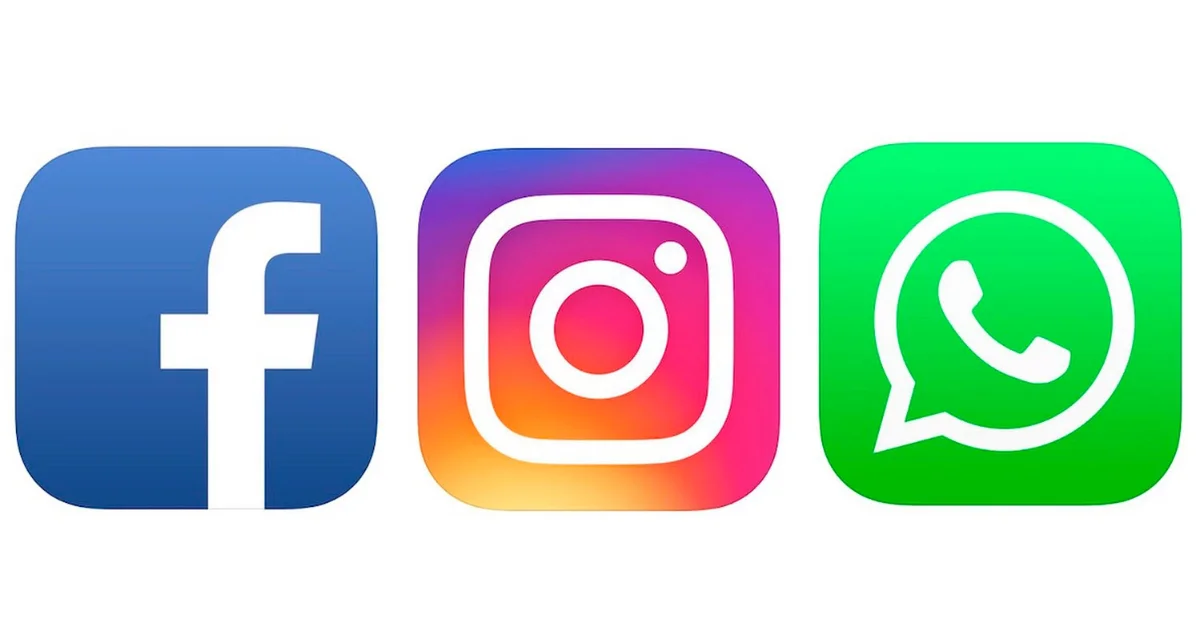
Instagram and WhatsApp, Human Error or technology issues? I doubt that Mark Zuckerberg will read people’s comments on his posts, but if he does, he will be able to read the comments below his apology after a disruption to Facebook and other services last week. It will take about 145 days to read without sleeping. The founder and chief executive of Facebook wrote after the six-hour shutdown of Facebook, WhatsApp and Instagram:
“Sorry for today’s disturbance. Facebook blamed routine maintenance work for the disruption and said Facebook’s engineers had issued a command that inadvertently disconnected Facebook data centers from the Internet.
Related: Facebook is harmful to children and divides societies
About 82.27 million people responded to Zuckerberg’s apology.
Some of the messages contained comments: “It was too bad. I had to talk to my family. I thought my phone was broken,n and took it to be repaired.” Some people also expressed anger and resentment: “You can’t close everything at once.” Some consumers also demanded compensation from Zuckerberg for the damage caused to their businesses by the closure.
One clear thing from this is how much billions of people rely on these services, which are not only for entertainment but also for necessary communication and trade. Another thing that has become clear is that this is not a one-time event because experts believe that such large-scale closures are now becoming more frequent.
“What we’ve seen over the years is that we’ve relied heavily on a small number of networks and companies to deliver a large chunk of Internet content,” says Luke Dereks, chief technical officer of the website Down Detector. is going.’ “When one or more of these services have a problem, it not only affects them, it affects hundreds of other services,” he says.
Related: Twitter launches Spark program to popularize audio spaces.
Facebook, for example, is now used to sign in to many different services and devices, such as smart TVs. “And so you know, there are days when one thing closes, so we all look at each other and say, ‘So what are we going to do?’ Luke Dereks and his team at Down Detector oversee various issues on web services and websites. He said that massive disruptions to key services are now becoming more frequent and serious.
“When Facebook has a problem, it affects not only the Internet but also the economy, and as you know, Society too. Millions of people in California are waiting for a small team to fix something. This is an interesting aspect that has grown over the last two years. ”
When are Major Services on the Internet Shut down

October 2021: Facebook, Instagram and WhatsApp services are down for six hours. Other apps, such as Twitter, were also disrupted by the influx of new users and the rush. July 2021: More than 48 services, including Airbnb, Expedia, and Home Depot, were disrupted for about an hour, citing a problem with DNS. June 2021: Amazon, Reddit, Twitch, and Spotify websites shut down for about an hour.
December 2020: Gmail, YouTube, Google Drive and other Google services are down for about 90 minutes. The company said the disruption was due to an “internal storage quota issue.” November 2020: Thousands of third-party online services are disrupted for hours in the US state of Virginia due to a technical glitch in the Amazon Web service.
March 2019: Facebook, Instagram and WhatsApp shut down for about 14 hours. Some other apps like Tinder and Spotify, which are logged in through Facebook, were also affected. During any major shutdown of these services at any stage, people must be worried that this disruption will result from a cyber attack.
But experts suggest that this is often a human error, and they say the Internet is being run on an old and complex system. During the shutdown of Facebook, many experts on Twitter joked that the reasons for such a glitch were always the same and that the system was too old and “designed on tissue paper.” Internet scientist Professor Bill Buchanan agrees:
“The Internet is not a widely distributed network that the original architects of the DARPA (Defense Advanced Research Project Agency) tried to create, which can withstand a nuclear attack. Its protocol is essentially the only one designed to connect common terminals to mainframe computers. A breakdown in its basic infrastructure could disrupt the entire system.
Related: Facebook or Instagram profile be deleted after death?
Professor Buchanan says improvements can be made to make the Internet more flexible, but many of the basic principles of the Net will remain for better or worse. “Generally, the systems work, and you can’t ‘turn off’ for a day trying to recreate some of the Internet’s protocols.”
Instead of trying to rebuild Internet systems and structures, Professor Buchanan believes that we need to improve how we store and share data; otherwise, there is a risk of massive shutdowns in the future. Be ready for. He says the Internet has become a hub where a lot of data comes from a single source. He explained that this trend needs to be reversed with systems with multiple points so that no failure can stop the service from running.
There is also hope. Although major Internet shutdowns affect the lives of consumers and businesses, they will ultimately help improve the Internet’s emerging power and web services. Forbes, for example, estimates that Facebook lost 66 million during the six-hour shutdown due to the suspension of ads on the site.
After this kind of loss, senior executives may focus on preventing this from happening again. According to Derek, “They lost a lot of money that day, not only in terms of their stock price but also in terms of their operational income.” And if you look at content delivery networks like Fastly and Cloud Flare, they’ve lost a lot of customers. So, I think these operators are doing their best to keep things online.



